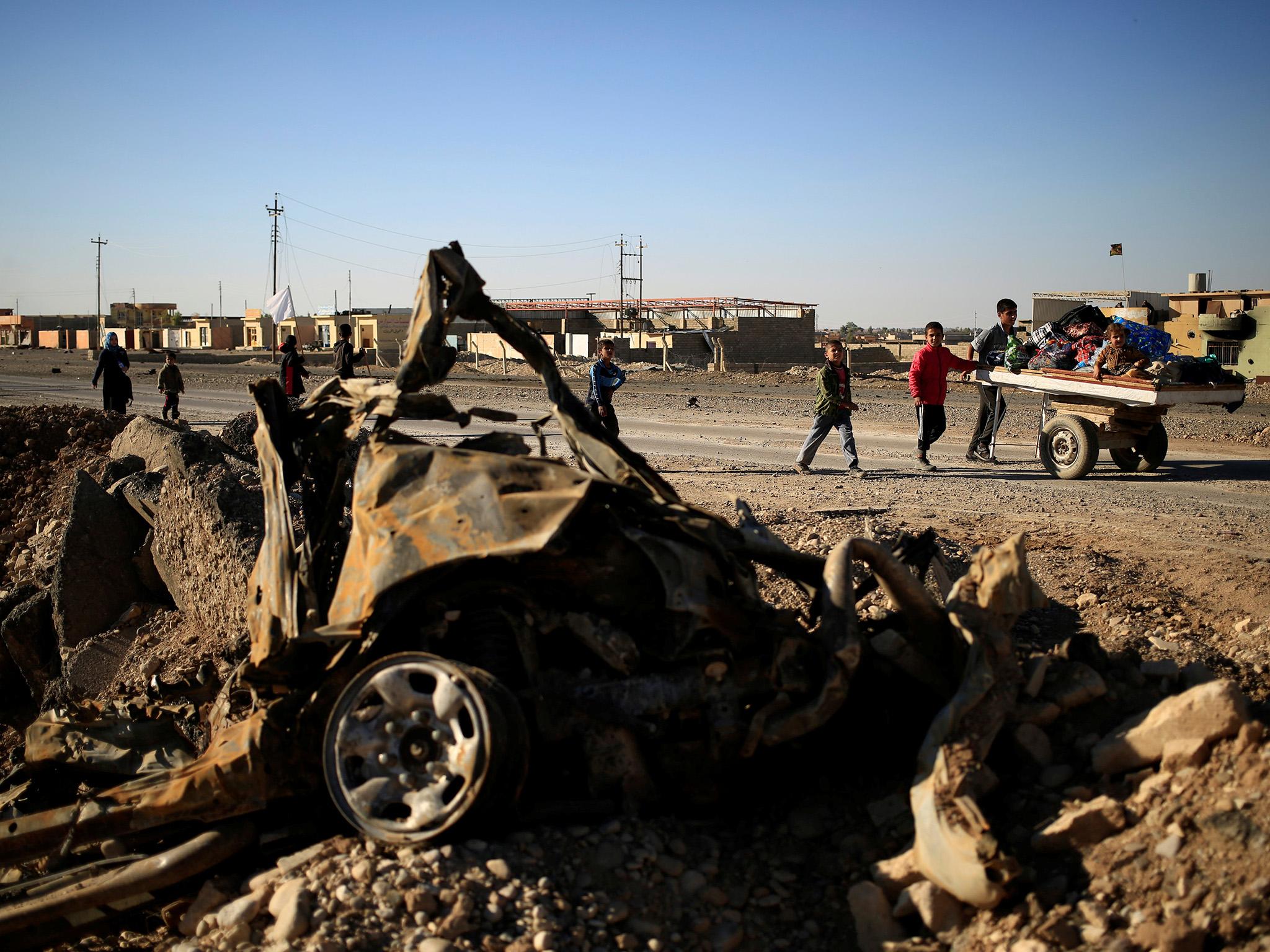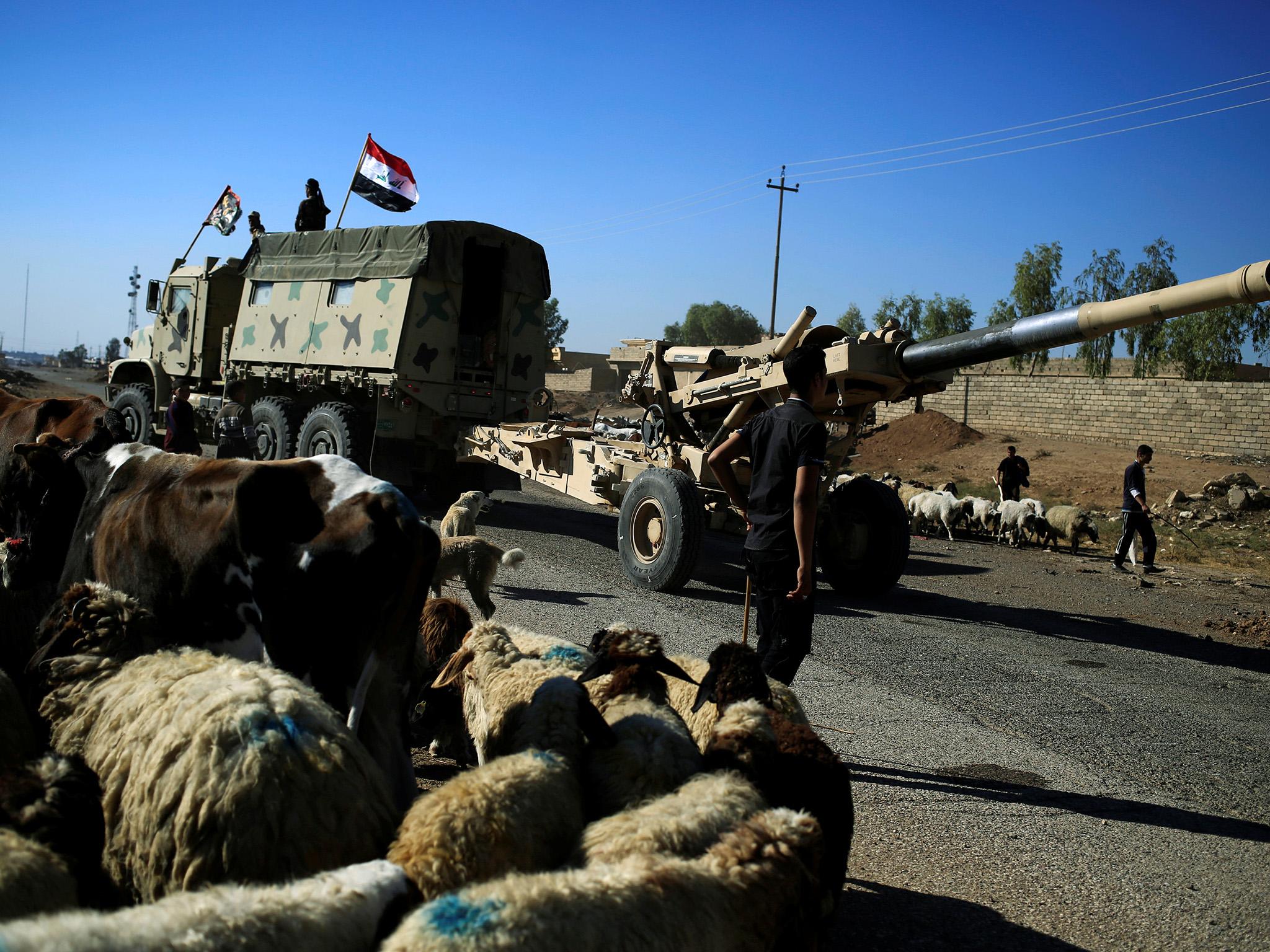Foreign Isis fighters defend east Mosul as local jihadis flee for safety, former militant reveals
In an exclusive interview with The Independent, the fighter describes growing chaos among the terror group’s forces as Iraqi and coalition troops enter the city

Your support helps us to tell the story
From reproductive rights to climate change to Big Tech, The Independent is on the ground when the story is developing. Whether it's investigating the financials of Elon Musk's pro-Trump PAC or producing our latest documentary, 'The A Word', which shines a light on the American women fighting for reproductive rights, we know how important it is to parse out the facts from the messaging.
At such a critical moment in US history, we need reporters on the ground. Your donation allows us to keep sending journalists to speak to both sides of the story.
The Independent is trusted by Americans across the entire political spectrum. And unlike many other quality news outlets, we choose not to lock Americans out of our reporting and analysis with paywalls. We believe quality journalism should be available to everyone, paid for by those who can afford it.
Your support makes all the difference.Foreign fighters for Isis are choosing to stand and fight the Iraqi army in east Mosul, while the group’s local militants are crossing the Tigris river with their families to the more defensible western side of the city, a former jihadi has told The Independent.
In an exclusive interview, the fighter, who calls himself Faraj, described scenes of growing chaos and an apparent breakdown of discipline among Isis forces in Mosul. He said that local fighters seeking to leave the east of the city, which Iraqi forces entered on Tuesday, were being stopped at checkpoints and cross-questioned by Isis security officers, whom he said were mostly Libyans and much feared for inflicting severe punishments. On this occasion, he said that “fighters accompanied by families are being allowed to cross the bridges to the west bank, while individuals are being sent back to the front line”.
Faraj said he had a cousin who left Raqqa, the de facto Isis capital in Syria, four months ago and had gone with his family to live in east Mosul. His cousin was not fighting on the front line, but was manning checkpoints and carrying out other activities for Isis. Nevertheless, when the Iraqi army entered Gogjali district on the extreme east side of Mosul, he found himself at the front with 15 other fighters, but they later retreated over one of the five bridges that span the Tigris and took up positions in the Yarmouk neighbourhood on the west bank.
He said that imams in the mosques were calling over loudspeakers for people “to stay and resist the apostates and unbelievers”. But their pleas were being ignored by many as the anti-Isis forces backed by US-led air strikes close in on Isis’s last great stronghold in Iraq. Faraj quotes his cousin as saying that that “thousands of civilians on the eastern bank were fleeing and seeking safety with the Iraqi forces without our men [Isis] preventing them because some of them were also running away though others continued to fight.”
Faraj’s account of the confusion inside Mosul, which remains overwhelmingly under Isis control, confirms reports from other eyewitnesses of a partial breakdown of order, particularly in the east of the city. He adds that “most local fighters who had families have withdrawn from the eastern bank, but most of the foreign fighters have stayed”.
There are signs that Isis’s iron control of Mosul may be eroding, but it is still a force to be feared as it seeks to eliminate anybody who might oppose it. Some 90 former police officers have been detained and confined in a school in central Mosul. There are reports of local resistance units ambushing and assassinating Isis officials and small groups of fighters. Heavy weapons have been evacuated from east Mosul to the west and defensive positions by the bridges abandoned, suggesting that Isis intends to blow up the bridges.
Residents speak of little movement on the streets of Mosul with people keeping to their houses. Markets are still operating in the west, but there is a shortage of petrol, food and medicine and no public supply of electricity and drinking water (though many people have generators and others have dug wells).
The main assault on Mosul by the Iraqi army forces will come from the south rather than the east, and here army units are still some 20 miles from the city. But the encirclement by the different elements in the shaky alliance looking to take part in the siege is getting tighter. The Shia paramilitary forces known as the Hashd al-Shaabi, or Popular Mobilisation Units, on Thursday cut one of the main Isis supply routes linking Mosul to Syria. Hadi al-Amiri, the leader of the Shia Badr organisation, said that the next step would be to cut the route between Mosul and the small city of Tal Afar, whose Sunni Turkman population is notorious for its past support for Al-Qaeda in Iraq and later for Isis, several of whose leading commanders and officials come from there.

As the struggle for Mosul reaches a crisis point, the leader of Isis and self-declared caliph Abu Bakr al-Baghdadi has emerged for the first time in almost a year to issue a call to arms. The tape of his speech was released late on Wednesday night, but it is not known when or where it was recorded. He calls on his followers to obey orders and to remain resilient and aggressive: “Oh you who seek martyrdom! Start your actions! Turn the night of the disbelievers into day.” He calls for a general attack on the territories of the enemy so their blood will “flow like rivers”. He calls in particular for attacks on Turkey and Saudi Arabia.
Baghdadi is believed to be in Mosul according to multiple sources of information cited by Fuad Hussein, the chief of staff of the Kurdish President Massoud Barzani, in an interview with The Independent earlier this week. He said that the death of the self-declared caliph would be a decisive blow to Isis, which has no alternative leaders with anything like his authority and charisma to replace him. It was he who in June 2014 declared the caliphate after the surprise capture of Mosul by Isis.
At the height of its success the caliphate covered an area the size of Britain, but it has prepared its own defeat by declaring war on much of the world. The outcome of its extreme belligerence, and targeting of anybody who did not agree with it as an enemy to be destroyed, has produced the present diverse coalition which is moving to besiege Mosul. It includes forces backed by the US, Iran, Turkey and many other powers along with Shia and Kurdish armies that in the past have come close to fighting each other. Though Baghdadi has called for all-out resistance, there is an air of desperation to his defiance as if he knows that defeat is unavoidable.
Join our commenting forum
Join thought-provoking conversations, follow other Independent readers and see their replies
Comments